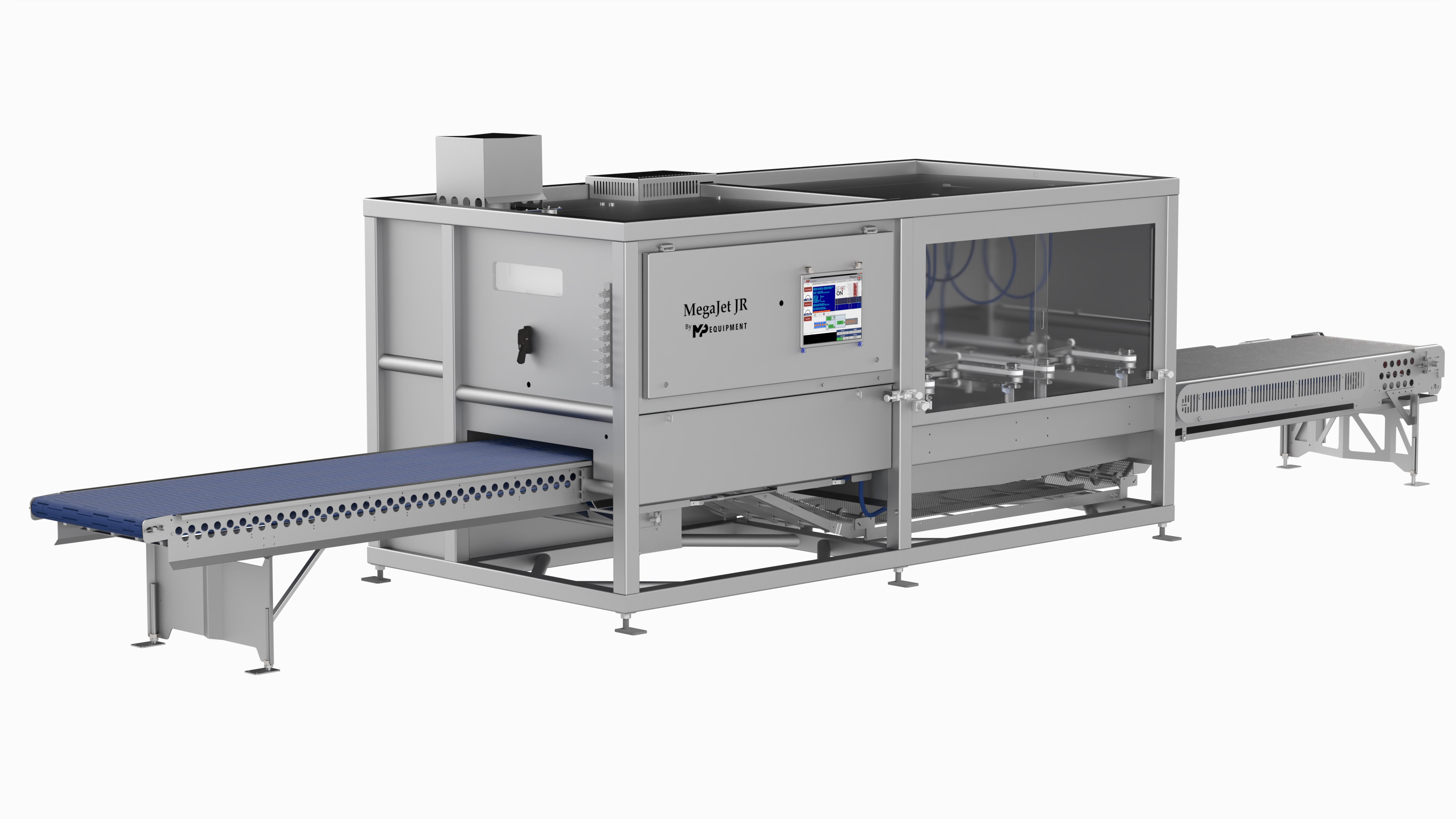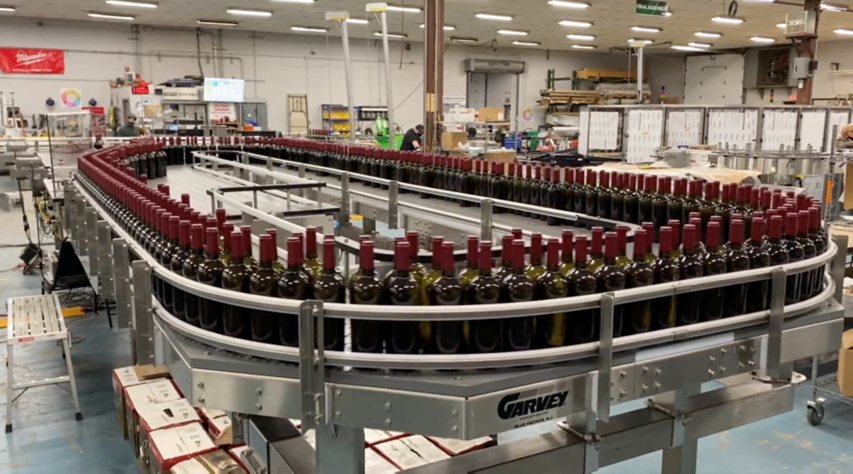Much has changed over the years in the protein industry, but one thing has remained constant. Meat, poultry and seafood processing is still a high volume, low margin operation. To increase profitability, processors must remain keenly focused on improving throughput and yield.
In trimming and portioning operations, processing plants continue to add more automated equipment to achieve better speeds, more efficiency – and tighter tolerances. At the same time, their attention has shifted from risks associated with manual processes – like knife injuries – to those that involve interaction with machines.
“Historically, the protein industry has been behind other industries in technology, but we see that quickly ramping up,” said Rodney Nelson, director of engineering, MP Equipment. “And concerns around machine safety are also accelerating.”
Located in the heart of Gainesville, Georgia, MP Equipment is backed by more than 45 years of experience solving protein processing challenges. The fully integrated manufacturing and fabrication company is part of the Middleby Corporation.
A Fresh Look at a Proven Design
When MP Equipment introduced its MegaJet™ water cutter in 2010, it was the first 8 X-Y axis, high-capacity protein water cutter on the market.
Water cutting is quickly becoming the technology of choice for trimming and portioning applications. Using a thin stream, high-pressure waterjet, plus camera and scanning technology, water cutters achieve a high degree of accuracy.
“The MegaJet water cutter uses intelligent cut paths to improve yield in demanding applications, like cutting the most nuggets from a single piece of chicken,” said Nelson. “The machine is highly versatile – and can cut thousands of pounds per hour.”
Machine safety has always been a priority for MP Equipment and over the years, the company has revamped designs to meet increasing regulations and concerns. In 2020, a customer request to increase the short-circuit current rating (SCCR) on a MegaJet machine led the company to reevaluate their design – and document safety performance.
“Of course, we had E-stops, trap keys and other safety functionality in place,” said Nelson. “But the question was, how do we systematically take a closer look at our design – and quantify machine safety?”
To answer that question, MP Equipment called on Rockwell Automation machine safety consultants.
(Remote) Teaching Moments
The engagement with Rockwell Automation began during the height of the COVID-19 pandemic. As a result, all consulting took place remotely. The team relied on Zoom meetings and 3D machine models to make it work.
“The consultants focused on not just doing the work, but also teaching us,” said Nelson. “They outlined the reevaluation process for the MegaJet – and gave us insight that will be valuable in any future projects as well.”
Specifically, the Rockwell Automation team provided guidance on how to identify potential hazards through a machine safety risk assessment.
“We had used SISTEMA and understood the basics of risk assessments,” Nelson explained. “But we felt assistance from an experienced outsider could really help speed the process."
IFA SISTEMA is a software modeling tool that supports the evaluation and documentation of safety in the context of the EN ISO 13849-1 safety standard.
Opportunities for Improvement
Through the assessment process, Rockwell Automation helped MP Equipment pinpoint opportunities for improvement specifically related to potential worker exposure to high-pressure water and stored sources of energy.
In one case, the team uncovered a software workaround in the electrical E-stop system, which was remediated to help ensure workers could not enter the machine while high-pressure water was still being ejected. The team also improved the integrity of the E-stop circuitry for the high-pressure water accumulator by installing Allen‑Bradley Guardmaster® safety relays. Allen‑Bradley safety-rated contactors were also added at various places in the system.
The Rockwell Automation team also recommended that MP Equipment use the Safe Torque Off feature in the Allen‑Bradley PowerFlex® 525 AC drives that run the machine conveyor.
“Previously, we were cutting power to the drives completely when the E-stop was engaged,” Nelson said. “One of the consultants called this the ‘atomic option’.”
The Safe Torque Off capability removes rotational power from the motor without powering down the drive. As a result, there is less wear on the drive – and equipment can be restarted more quickly.
Taking Ownership of Safety
The MegaJet machine safety risk assessment – and associated remediation and documentation – confirmed compliance with EN ISO 13849-1 standards and satisfied customer requirements. Going forward, other products in the Jet Series™ will receive the same architecture updates.
“Throughout the process, Rockwell Automation was happy to share information and include us in every step,” said Nelson. “The project brought together our electrical, mechanical and software teams working as a whole to improve machine safety.”
“The project gave us a lot of confidence,” Nelson added. “When it comes to machine safety, we own it."




